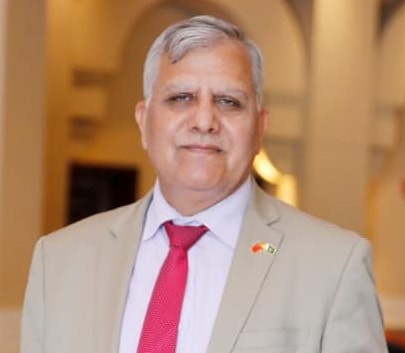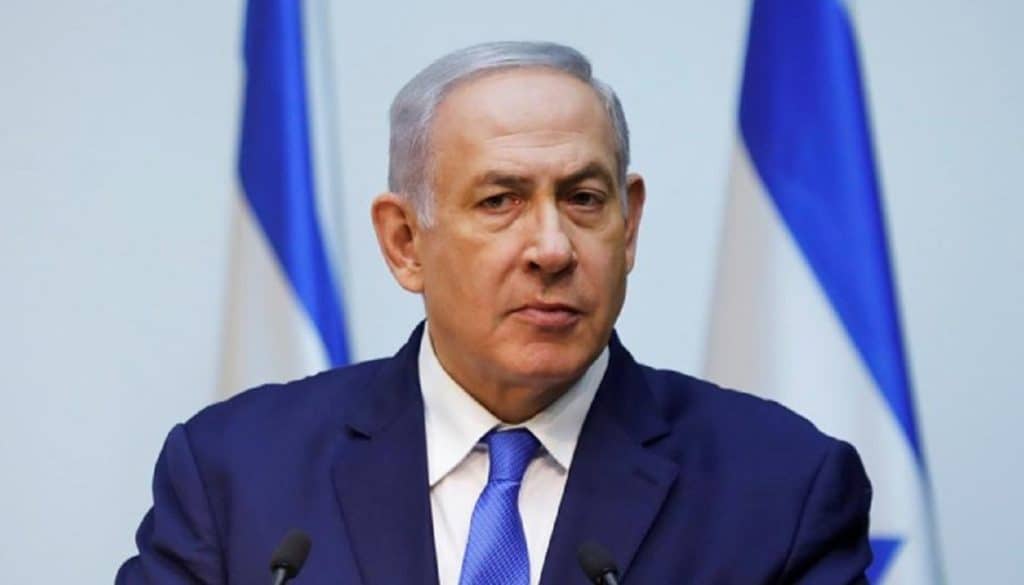By Prof. Engr. Zamir Ahmed Awan
Israeli Prime Minister Benjamin Netanyahu cancelled a maiden visit to the United Arab Emirates (UAE) scheduled for 11 March 2021, citing a disagreement with Jordan overcrossing its airspace.

The overflight row “apparently stemmed” from Israel’s cancellation of a planned visit Wednesday by Jordan’s Crown Prince Hussein to the Al-Aqsa mosque in occupied east Jerusalem. Later on, Jordan announced that it would allow the prime minister’s flight to use Jordanian airspace. Still, since the announcement was received late, Israel’s prime minister has already postponed his trip. Oded Eran, a former Israeli ambassador to Jordan, said the latest spat between Israel and Jordan reflected a deeper deterioration in relations in recent years. Eran also said there is a lack of trust, highlighted by Israel’s plans last year to annex parts of the Israeli-occupied West Bank.
Israel established formal relations with the UAE and Bahrain last September – only its third and fourth normalisation deals with Arab states in more than 70 years – as part of a US-brokered agreement. The US-brokered deal under former President Donald Trump required Israel to halt its controversial plan to annex the already illegally occupied West Bank. This step could have scuppered the possibility of a future Palestinian state. Saudi Arabia, a Gulf powerhouse and Islam’s birthplace encouraged the rapprochement but stopped recognising Israel itself. However, under ex-president Trump’s administration, the deal was achieved and now facing uncertainties.
Reports suggested that Netanyahu may have also been hoping to meet Saudi Arabian Crown Prince Mohammed bin Salman and/or Sudanese Prime Minister Abdalla Hamdok during the trip, which was scheduled to be held during his planned trip. The UAE’s journey was scheduled for several months but postponed on numerous occasions, most recently in February. Netanyahu had initially been set to make the trip in November, then December, and then in January and February, but the pandemic, scheduling issues, and internal political crises led to repeated delays.
COVID-19 has been a significant hurdle in planning the visit as the travel restrictions, and fear of Coronavirus have threatened the trip. The impact of the Pandemic on Isreal was immense, and the number of new cases kept increasing. Despite all possible measures, the vulnerability has not brought under control.
Emirati officials told the Walla news site that there had been concerns the visit would be seen as an intervention in the Israeli elections. Still, in the end, Abu Dhabi reluctantly agreed to the trip. Netanyahu tasked Mossad intelligence agency chief Yossi Cohen with persuading the UAE to agree to the visit and takes all responsibilities in respect of security. As there are anti-Israeli sentiments in the public and there were threats of unwanted incidents or mishaps. The UAE rulers are pleased to establish relations with Isreal, but the public was not on the same page and was showing resentment.
Netanyahu, running in politically polarised Israel’s fourth election in two years mainly on his role in its rapid COVID-19 vaccination programme, has also made his drive to forge new relations in the Gulf region a centrepiece of his campaign.
He is a most controversial candidate in the upcoming elections, and if he loses the election, the up-coming Prime Minister may not follow the same approach toward UAE. Like in America’s case, the newly elected president, Joe Bidden, disagrees with some of the policies opted b ex-president Trump, and the situation has been changed visibly.
However, it is expected, peace will prevail, and only peace should be persuaded. Postponement of the visit may not be taken as an adverse event. As long as Israel guarantees the right of Palestinians and Arabs in the region, there will be peace and harmonious environments. Peace will help to improve the economy and development of the region and serve humankind.
Author: Prof. Engr. Zamir Ahmed Awan, Sinologist (ex-Diplomat), Editor, Analyst, Non-Resident Fellow of CCG (Center for China and Globalization), National University of Sciences and Technology (NUST), Islamabad, Pakistan.
(The views expressed in this article belong only to the author and do not necessarily reflect the editorial policy or views of World Geostrategic Insights).







